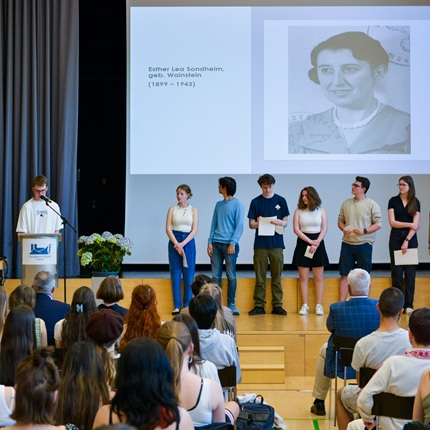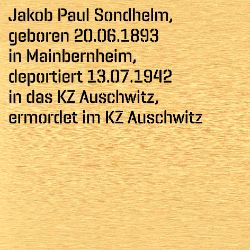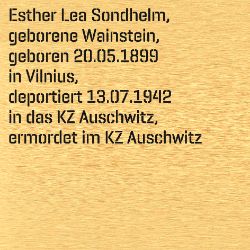Chaim (also called Cherim or Christian) Eingelster was born on November 5, 1879 in Vilnius in what at the time was the Russian Empire. He was a painter and decorator and in 1904 married the widow Chejne (also called Helene) Wainstein (also spelled Wajnstein), née Gelfar. She was born on November 19, 1877 also in Vilnius, and worked as a seamstress. Her daughter Ester Lea, born in 1899, was the child of her first marriage.
In 1906 the Eingelster family moved to Munich. Chaim Eingelster became a technical and artistic draughtsman at the Deutsches Museum. At first the family lived in the centre of Munich and on April 1, 1912 they moved into a three-room apartment on the first floor of the forester’s lodge at Fasangartenstraße 124. From 1939 Ester’s husband Jakob Paul Sondhelm lived there as well.
On August 4, 1914, just a few days after the beginning of the First World War, the Deutsches Museum gave Chaim Eingelster notice of dismissal because he was still a Russian citizen. But the dismissal was not carried out, for from as early as September 1914 Chaim Eingelster was once more working for the Deutsches Museum, now primarily as a home worker. After the end of the war he once again worked officially for the museum. In 1927 he was even awarded the museum’s Silver Ring of Honour.
A few months after the Nazi seizure of power, Chaim Eingelster lost his job on October 31, 1933 as a result of the “law for the restoration of the professional civil service”. His wife Chejne had previously been described in a campaign of slander as a “typical insolent, disgusting Russian Jewess”. Chaim Eingelster was alleged to have “deserted to Germany in the Russo-Japanese War“, where he “arrived in a totally ragged state and was nursed back to health by the stupid, good-natured Germans”. After his dismissal, the museum allowed him a retirement salary of 117.15 Reichmark.
In 1940, Chaim and Chejne Eingelster attempted to flee to Russia – without success. On April 4, 1942 the couple was deported to Piaski ghetto where all traces of them were lost. Text Europäische Schule 2022, editor C. Fritsche, translation P.Bowman)



-Eingelster_portrait.jpg/jcr:content/PORTRAIT_14503.jpg)




-Eingelster_image.jpg/jcr:content/EZ_BILD_14557.jpg)